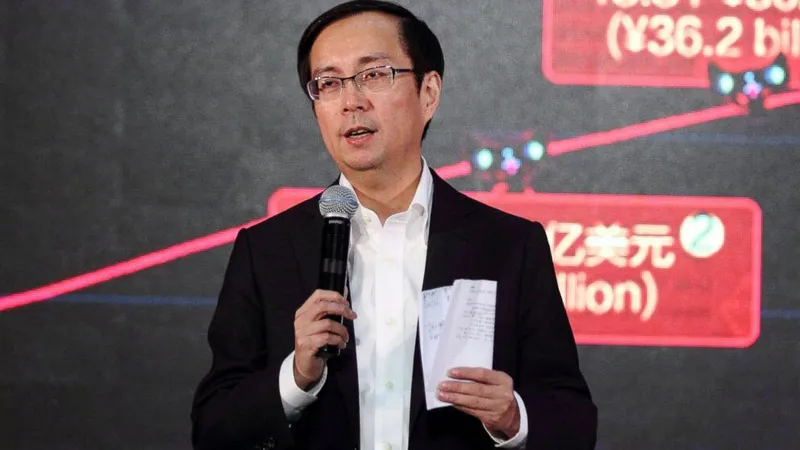'India is very important for Alibaba,' says CEO Daniel Zhang
Since Paytm in 2013, Chinese retail giant Alibaba has been making investments in India, entering into partnerships with other e-commerce companies ranging from logistics players to food delivery apps. Right when reports are surfacing that it is investing in Indian online grocery market leader BigBasket, the company’s head has made it crystal clear: India matters to the Alibaba Group.

In an interaction with international media at the 11.11 festival (also known as Singles' Day) in Shanghai, Alibaba Group CEO Daniel Zhang specified that globalisation is their core strategy for the next few years. When asked about their possible expansion plans in India, he elaborated,
“The question we ask ourselves is 'Why should we, Alibaba, go there? How can we help?' We want to help the local entrepreneurs grow. That is why we have invested in Paytm. We are very happy to see that digital payment is becoming very popular. This is a clear example to demonstrate our effort to help them grow. This is not just about growing our business, but helping them to be successful."
New retail model
“New Retail” is one of Alibaba’s core strategies, and 2017 marks the beginning of a new retail era. It redefines e-commerce by enabling seamless engagement between the online and offline worlds. In China, e-commerce accounts for about 18 percent of total retail. With New Retail, Alibaba aims to bring data and tech capability to work with and digitally transform the 82 percent of offline retail. The aim is to enhance their operations, including customer experience, inventory management, and retail spaces.
Under this concept, Alibaba has launched Hema under which customers can buy fresh food, eat in, or order home delivery. Also, for this year’s 11.11, around 100,000 psychical stores, about a thousand brands, and FMCG outlets have been transformed to ‘Smart Stores’ with which Alibaba’s data intelligence gives smarter insights to the offline stores about their customers. Likewise, ‘Tmall Stores’ use Alibaba’s retail solutions with one stop B2B supply, logistics, promotion, and other value added services.
The India question
Alibaba has already invested more than $1billion in Paytm Mall which follows O2O model. Is this a precursor to its New Retail model? Asked if he thinks India has the potential to adapt to this New Retail model, Daniel replied,
“India has great opportunity for New Retail to take off. In some countries, e-commerce may not take the traditional route. They skip a phase just like some markets skipped PC/desktop to go to mobile. In those markets, e-commerce 1.0 is skipped and it goes directly to e-commerce 2.0. But this depends on technology, data, and innovation in retail formats.”
However, he assures that O2O has the pre-condition of the New Retail. “It is not just about online-offline connection; it is not about driving traffic to online or vice versa. It is about providing real value for both customers and businesses.”







